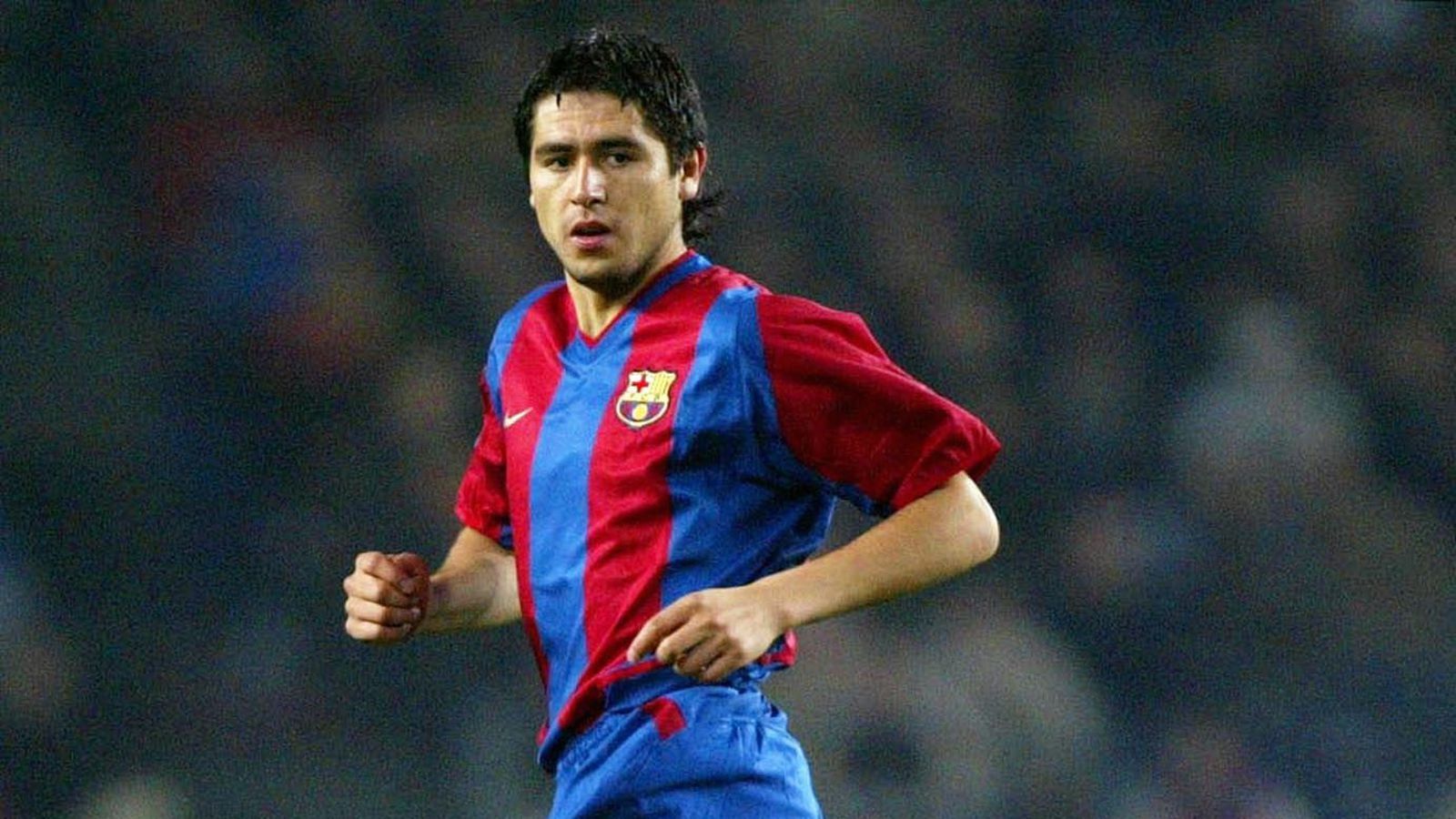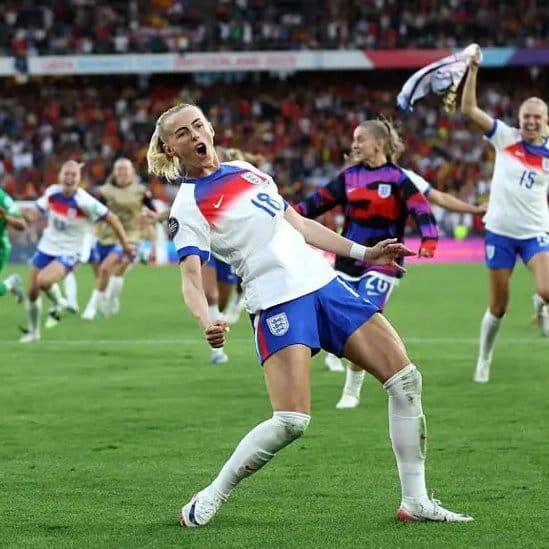Greetings from Yorkshire!
Rory Smith writes: As fans, I think it is fair to say that we find ourselves now in a post-soccer reality. As a cultural form, the game has matured out of actually having to happen to capture our attention. Often, in fact, it is most captivating when it is not happening. The dramatic high point of the year might not be when we’re cheering for spreadsheets, but when we’re watching live, uncut H.R.
I’m in France on holiday, with my family and my now slightly feral children, both of whom have decided that they should be allowed to stay up beyond 10 p.m., in what my son very clearly thinks of as “the French manner.” I am letting myself down, though, by thinking often of my phone, wondering if the next stolen glance might bring some sort of resolution to the Alexander Isak situation.
That transfer saga, of course, is the light source for countless other sagas: Luis Díaz’s move to Bayern Munich, Darwin Nuñez’s departure for a field where he might be wild and free, Benjamin Šeško and Yoane Wissa’s arrivals on Tyneside. But it is a different transfer, a rather sadder one, that caught my eye this week: João Félix’s logical last step, at the age of 25.
Enjoy,
Rory
Out of Time 🕰️

I knew I would love Juan Román Riquelme even before I saw him. It was fated, really: he was, in effect, at the heart of the Venn diagram of everything I wanted in a player. Riquelme wore No. 10. He played in Argentina. Even by the standards of the late 1990s, long before they invented what we now know as the high press, he saw his defensive duties as largely theoretical.
Riquelme may or may not have been the most talented playmaker of his era – it is hard to judge – but he was certainly not the most successful. Pablo Aimar, Alessandro Del Piero, Francesco Totti, Ronaldinho, even Juan Carlos Valéron, his closest European equivalent, were all more garlanded, more celebrated, certainly outside Argentina, outside Boca Juniors.
Even at the time, though, it was obvious that Riquelme was an inherently romantic figure, the last scion of a dying breed. The No. 10 – the roaming, free-thinking creative who was both the heart of the team and in some way apart from it – was being phased out; increasingly, as long ago as the turn of the century, the system was starting to become king.
It did not happen overnight, of course; as late as 2007, in the last year before we entered an era that would be defined by Lionel Messi and Cristiano Ronaldo, Kaká was crowned World Player of the Year. (You can and should make a case that Messi himself was a No. 10, but then if you start throwing Lionel Messi into every argument, we’ll never get anywhere. Messi should be treated for what he is: an exception.)
But Riquelme showed the direction of travel. He eventually came to Europe in 2002; that he had stayed in Argentina until he was 24 shows how different the world was back then. Louis van Gaal, the Barcelona manager, was every inch a systems guy; he was, perhaps, the midwife of European football’s switch away from individual expression.
Van Gaal had not commissioned the signing of Riquelme, and he had little or no use for him. When he did play, it tended to be as a left winger; even van Gaal cannot seriously have thought that was the best use of his talents. The player anointed Diego Maradona’s heir at Boca Juniors lasted just a season at Barcelona before he was unceremoniously dumped.

In many ways, it is easy to see an echo of Riquelme’s story in the saga of João Félix. In case you have forgotten – and that would be eminently reasonable – Félix was, six years ago, the standard-bearer for football’s coming generation. He had emerged, perfectly formed, at Benfica, an impish and inventive playmaker. His talent burned so bright that Atlético Madrid made him the fourth most expensive player of all time, paying $140 million or so to bring him to the Spanish capital. Félix was the next big thing.
It has not, needless to say, worked out like that. Félix performed better at Atlético than is often remembered – he was the club’s player of the year in his last full season – but it would be a stretch to say he justified the scale of his fee; nor did he ever seem an especially natural fit with his drill sergeant coach, Diego Simeone. By January 2023, Atlético had been reduced to hoping to recoup some of its outlay; he was loaned to Chelsea to try and find his form, to bolster his value.
That was the start of a long, slow fade into something close to irrelevance: a loan to Barcelona followed his spell at Chelsea; for reasons that take some explaining, Chelsea bought him after that, but never showed any particular inclination to use him. He was sent out to AC Milan for a few months, earlier this year, got lost in the churn of that particular institution, and at the start of the summer found himself back in London, sufficiently surplus to requirements that he did not, in fact, have a squad number.
And that, effectively, is where Félix’s story ends. This week, he was sold to Al-Nassr, the Saudi Arabian vehicle that seems to exist solely to help Cristiano Ronaldo break various goalscoring records. Chelsea, somehow, managed to pocket $34 million for the deal, which might make the club’s accounts look healthy but seems to break almost every natural law of the market.
At 25, the move to Saudi Arabia seems to represent Félix’s surrender. He has been struggling, for six years, to find somewhere to fit in, somewhere his talents might be appreciated, somewhere he can be the player he seemed destined to be. He has tried four teams, in three countries, and none of them have worked. The Saudi Pro League is his admission that, now, his career is going to be about something else.
There are two ways of understanding that. One, the easier and the more popular, is to blame the player. Atlético, Chelsea, Barcelona and AC Milan have all invested in Félix. They have all given him a chance. It is highly unlikely that all four of them – given the managers they employ, given the teammates they provide, given the stages they have to offer – would have let Félix down. He is the common denominator. He might have an abundance of talent but his attitude, his industry, his ability or willingness to learn: there must be something lacking.
The second, the more sympathetic, is to suggest that Félix is a player out of time. He is, and always has been, what might be thought of as a classic No. 10: quicker, more dynamic than Riquelme, to be sure, but still very much a luxury. (The player he reminds me most of is, in fact, Aimar, whose European career was more successful than Riquelme’s, but was not what it might have been even 10 years earlier.)
He is the sort of player who presents a coach with a conundrum: either you build your team around Félix, or you leave him out entirely. And the reality is that, in soccer as it exists in the 2020s, almost every coach is going to take option B. Félix is, in this reading, almost a victim; it is not his fault that soccer no longer has a place for players like him.
Both of these are doubtless relevant; they are certainly not mutually exclusive. But there is one final factor that is often overlooked, and it is the one where the parallel with Riquelme comes in. When he fell out of favor at Barcelona, at the same age Félix is now, he did not have to go to Saudi Arabia; he was able to move, instead, to Villarreal, where he found a coach, Manuel Pellegrini, who knew what to do with him.
Riquelme became the fulcrum of that team. Pellegrini did not try to change Riquelme; he did not see him as a luxury. He thought of him as a gift, and he encouraged him to be himself. It worked, too. In 2006, Villarreal – led and inspired by Riquelme – came within a missed penalty of making the Champions League final.
Félix does not have that option. There used to be a suite of teams who were able not only to indulge an idiosyncratic star but also to pay them a competitive wage: it is what enabled Roma to keep hold of Francesco Totti and Valencia to employ Aimar and Werder Bremen to entice the Brazilian playmaker Diego to Germany.
The game’s economics mean those teams no longer exist: their budgets have shrunk at the same time as the salaries on offer at the superclubs have increased; for players seeking to maintain their incomes, the only alternative – once they have been found wanting by the established elite – is to move to Saudi Arabia, or perhaps to Turkey.
They must choose, in other words, between relevance and reward. To young men with extended families to support, there will often be only one option. That is a shame: not just for them, but for the game. Those sides, the ones graced by a single, lustrous star, were not just fun; by spreading the talent out, they helped to provide a little balance, too, to often a reminder that there was more than one way to win, that sometimes football was not a battle of spreadsheets, but a test of ideas.
A Very English Victory 🏴

With about 20 minutes to go of England’s quarterfinal at the Women’s Euros, it was – if we are all completely honest – quite hard to see a future which ended with a triumphal parade through London. The Lionesses had already lost, convincingly, to France in the group stages; Sarina Wiegman’s team was on the way to an even more comprehensive defeat to Sweden.
There are quite a few factors that went into England going from there (on the verge of a disappointing exit) to here (Chloe Kelly swearing live on lunchtime TV and everyone being delighted by it.) One is Kelly herself, of course: her nervelessness, her composure, the fact that she has become the very definition of a big game player.
The others are – and you can weigh them however you wish – Michelle Agyemang; England’s strength in depth, unrivaled in a European context; Wiegman’s ability to turn a game with her substitutions. To me, though, by far the most significant is that this England squad clearly thinks of themselves as winners. They do not really seem to recognize the idea of defeat.
In that, they remind me of what the United States once was (and may well still be again): indefatigable, indomitable. England won because winning is a habit, because they had already won, because they had their crown of three years ago to defend, because they believe in themselves to rescue any situation, no matter how perilous it might appear to be.
And in doing so, as my friend James Horncastle said, they gave England a victory in a style that English football culture really values: not pretty, necessarily, not as a result of some grand and overarching philosophy, but gritty and determined and inspiringly truculent – all the things, in other words, that English football tends to prize above all others.
What I’ve Been Writing and Reading ✍️📚
England’s intense and intimate relationship with the Lionesses is a very modern form of fandom
On Alexander Isak, and whether selling might be…good for Newcastle?
I really enjoyed this, on the BBC, on the club that made Viktor Gyokeres and Dejan Kulusevski
Your Recommendations, Ranked 🍦
In among all of the Chocolate Orange related missives – including a sighting of my favorite fruit in the film 28 Days Later – Erin Loxam has been in touch with a request.
“This October I'm travelling from Whitehorse, Yukon (in the far north west of Canada, up by Alaska), to the U.K. for the first time,” Erin wrote. “My plan is to visit areas from which my family originated: namely Shropshire and Lancashire. As a Liverpool supporter, I've given up on getting tickets to Anfield, but would love to see a game in either of my ancestral lands. Do you have any recommendations of a club or stadium, of any level?”
Shropshire, I will admit, is not a strong suit of mine – it is a bit of a no-man’s-land by British standards, although that probably doesn’t make much sense if you’re from the actual Yukon – but I’d maybe shy away from Shrewsbury Town, the county’s main league team; the place itself is fine but the ground is nothing special.
You may have more luck on the edges of Shropshire: West Bromwich is in the West Midlands, but the Hawthorns is one of the best stadiums in England – close and loud and with a great candy stall outside – and Stoke is… well, Stoke is an experience. It is English football in its primal form.
Lancashire, obviously, offers far richer pickings: Burnley and Blackburn have much to recommend, but I’d maybe plump for Preston. They have a great stadium, too, and more history than, well, anyone. And the food in that part of the world is extraordinary: the village of Aughton has more Michelin stars than people, and the Hot Pot at The Three Fishes out in the Ribble Valley is one of the great wonders of the world.
Oh, and tickets for all of those clubs should be relatively easily accessed: they certainly won’t be as scarce as their Premier League equivalents. Have a great time!
That’s all for this week. It’s now pitch black in the Loire Valley, and it would appear that nothing is happening with Alexander Isak tonight, so I’ll call it a day. Have a great weekend, and see you again next week…
As always, you can reach me anytime at [email protected].
Thanks,
Rory
